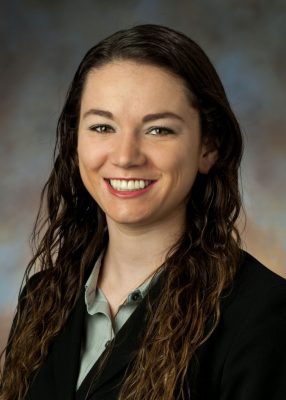 Kerry Lynn Davis-Amendola beautifully shares her experience as a current Ph.D. student in the Electrical Insulation Research Center (EIRC) paying special attention to the importance of her lab mates and the camaraderie that awaited her when she joined the lab. The inspiring article, The Best Part of a PhD that No One Is Talking About, appears in the “Young Professionals” section of the July/August 2023 edition of the journal IEEE.
Kerry Lynn Davis-Amendola beautifully shares her experience as a current Ph.D. student in the Electrical Insulation Research Center (EIRC) paying special attention to the importance of her lab mates and the camaraderie that awaited her when she joined the lab. The inspiring article, The Best Part of a PhD that No One Is Talking About, appears in the “Young Professionals” section of the July/August 2023 edition of the journal IEEE.
Year: 2023
IMS Welcomes New Staff Members
IMS Industrial Affiliates Program Hosts 2023 Annual Meeting
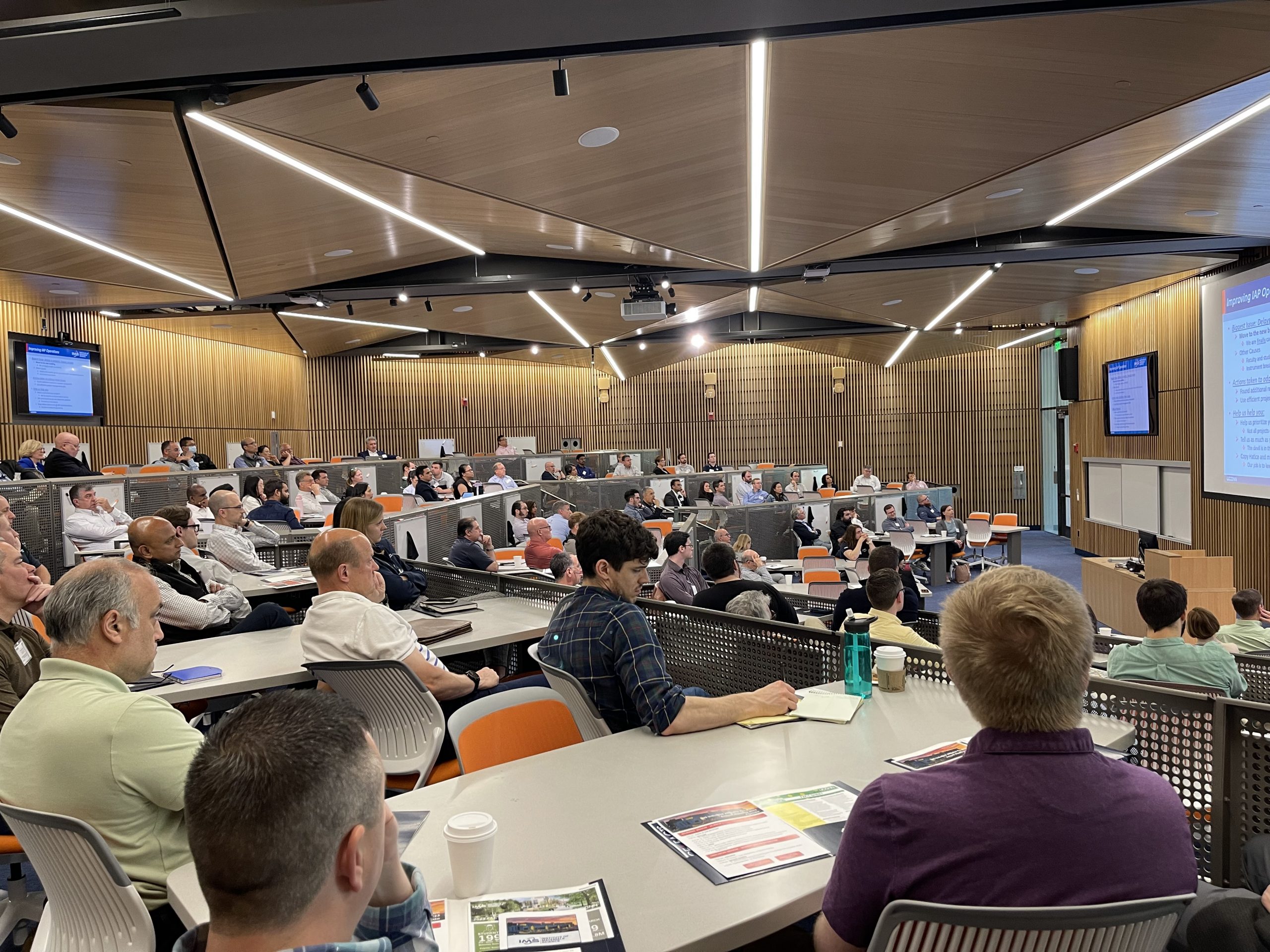
On May 25, 2023, the Institute of Materials Science (IMS) Industrial Affiliates Program (IAP) held its first in-person annual meeting since the onset of the COVID-19 pandemic in 2020.
The meeting began with a welcome message by Dr. Hatice Bodugoz-Senturk, Associate Director of the IMS Industrial Affiliates Program, followed by remarks by Dr. Steven L. Suib, Director of IMS, and Dr. Paul Nahass, Director of the IMS Industrial Affiliates Program. Dr. Bryan Huey, Department Head of Materials Science and Engineering (MSE) gave an overview of the MSE department and its achievements; and Dr. Kelly Burke, Director of the IMS Polymer Program, discussed the latest developments in polymer science.
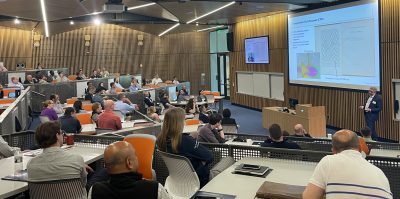
The morning session featured three presentations by IMS faculty members from different departments. Dr. James “Nate” Hohman, Assistant Professor of Chemistry, talked about his research on experimental foundations for next-generation materials and interfaces, and how he uses big science, big data, and big AI to discover new materials for various applications. Dr. Georgios Matheou, Assistant Professor of Mechanical Engineering, presented his work on predictive modeling and simulation of multi-physics flows, and how he collaborates with industry partners in renewable energy, aerospace, and health care sectors. Dr. Vahid Morovati, Assistant Professor of Civil and Environmental Engineering, explained his theoretical framework to model the long-term mechanical behavior of elastomeric materials considering damage accumulation and degradation.
The luncheon session featured a keynote address by Dr. Anne D’Alleva, Provost and Executive Vice President for Academic Affairs, who shared her vision and goals for UConn’s academic excellence and innovation. She also highlighted the importance and impact of materials science and engineering in addressing the global challenges and opportunities in the 21st century. The luncheon concluded with closing remarks by Dr. Paul Nahass.
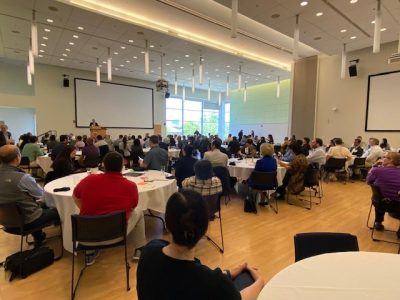
The meeting was attended by more than 100 participants from industry affiliates and external partners along with IMS faculty, students, and alumni. The meeting also showcased the annual Joint Poster Session by IMS Polymer Program and Materials Science and Engineering (MSE) students, demonstrating their projects and achievements in materials science and engineering. Industry partners were also given tours of core laboratories in the Science 1 building, the new home to IMS.
The IMS Industrial Affiliates Program provides materials characterization services to its industry partners. The program also facilitates collaborations between IMS faculty and students and industry partners on research projects of mutual interest.
The Institute of Materials Science is an interdisciplinary research institution that supports over 100 faculty members from 15 departments across UConn’s schools and colleges. The institute offers advanced degrees in polymer science and materials science, as well as state-of-the-art research facilities for its students and faculty to conduct research that is changing the future of materials science.
Naba Karan Wins DoD DURIP Funding
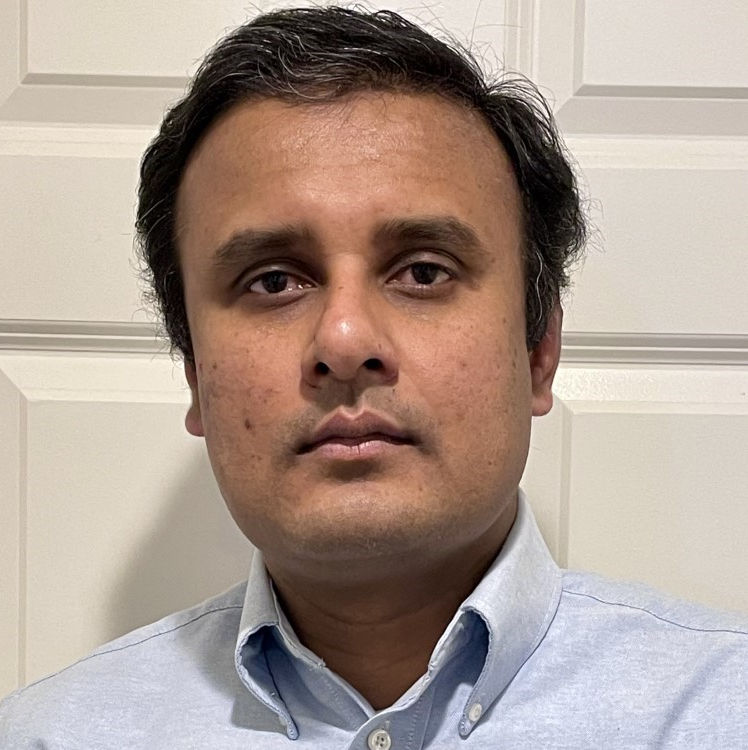
The U.S. Department of Defense (DoD) awarded four UConn scientists with high-profile grants to fund the acquisition of technology to bolster their research capabilities.
The highly competitive Defense University Research Instrumentation Program (DURIP), offered by the Air Force Office of Scientific Research (AFOSR), the Army Research Office (ARO), and the Office of Naval Research (ONR), funds cutting-edge research projects with potential to assist national defense.
Lithium-ion (Li-ion) batteries are one of the most common rechargeable energy storage technologies on the market. As a rule, they are quite safe under normal operating conditions, powerful, and scalable, from smartphones to electric cars. But given the number of Li-ion batteries produced around the world, their relatively small failure rate has still resulted in some high-profile stories of Li-ion batteries going into thermal runaway – an event when a battery catches fire, explodes, and releases toxic gases.
IMS member Naba Karan, an assistant research professor at the Center for Clean Energy Engineering (C2E2) in the School of Engineering, isn’t surprised.
“You can think of them as bombs,” he says, noting the high quantity of chemical energy contained within Li-ion batteries. And he’s looking to blow them up—on purpose.
With funds from the Office of Naval Research, Karan is constructing a facility at UConn that will explode the batteries in a controlled environment to determine critical safety parameters needed for designing advanced engineering protocols to mitigate thermal runaway events. In a military context, this information will help operators of machinery that depend on these high-powered batteries, such as submarines, determine when internal battery temperatures are exceeding safety thresholds. Most crucially, it will allow them to avoid catastrophic failure by diverting some of this heat.
The equipment will be able to analyze thermal characteristics of all types of energy storage technologies, not only Li-Ion batteries. Since it will be one of the only such facilities in the northeast region, Karan anticipates a high degree of interest and collaboration from other universities and companies looking into studying the safety characteristics of existing and emerging battery chemistries.
IMS Welcomes Mihai “Mishu” Duduta
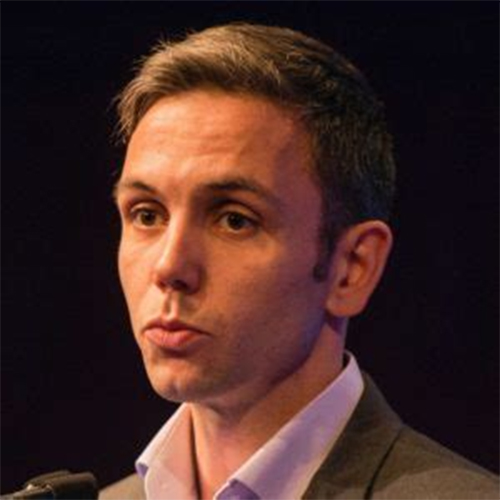
Mihai “Mishu” Duduta has joined the Department of Mechanical Engineering with an appointment in the Institute of Materials Science (IMS). Having earned his B.S. from MIT, he completed his M.S. and Ph.D. at Harvard University. Following the completion of his Ph.D., Duduta joined the faculty of the Department of Mechanical and Industrial Engineering at the University of Toronto as an assistant professor. He is a recipient of the Banting Foundation Discovery Award for 2022 for his research on “Smart Micro-catheters Based on Electro-mechanical Artificial Muscles.”
At the heart of his research “Mishu” (as Duduta prefers to be called) is focused on the science of soft robotics, novel materials, and energy storage. He seeks to “invent new ways to store energy and deliver power that bring new robotic capabilities.”
IMS News reached out to Dr. Duduta to welcome him and learn more about him and his research.
Your research focus includes novel materials, soft robotics, and energy storage. All of these are at the cutting edge of future technology. What led you to pursue this field of science?
I have always been fascinated by energy, and by materials that can act as transducers, effectively transforming one type of energy into another, for example chemical energy stored in covalent bonds of a fuel, to thermal energy, or heat by burning said fuel. I see Robotics as the next area of innovation for energy storage, conversion and harvesting.
You have said that in order for robots to interact more closely with people they must be more compliant, or flexible. How can the combination of materials, soft robotics, and energy storage achieve this goal and what do you see as the future implications as the science advances?
As machines become smaller or softer, we’ll need to invent new materials and mechanisms for actuation, sensing and computation. The end goal is to replicate nature as closely as possible, in an engineered system. If we have artificial muscles that can effectively replace natural ones, and run as efficiently for long periods of time, we can radically change almost all segments of the economy: from healthcare, to agriculture, manufacturing and beyond.
We are happy to welcome you to UConn IMS. How did you become interested in UConn and how will you contribute to student success, a key priority for the University?
UConn has a great location, outstanding students, talented faculty, and fantastic infrastructure. My goal is to train students to be more capable scientists and engineers, but also to develop a strong grasp of how to communicate science effectively, as well as gain an understanding of where their work can bring societal value.


